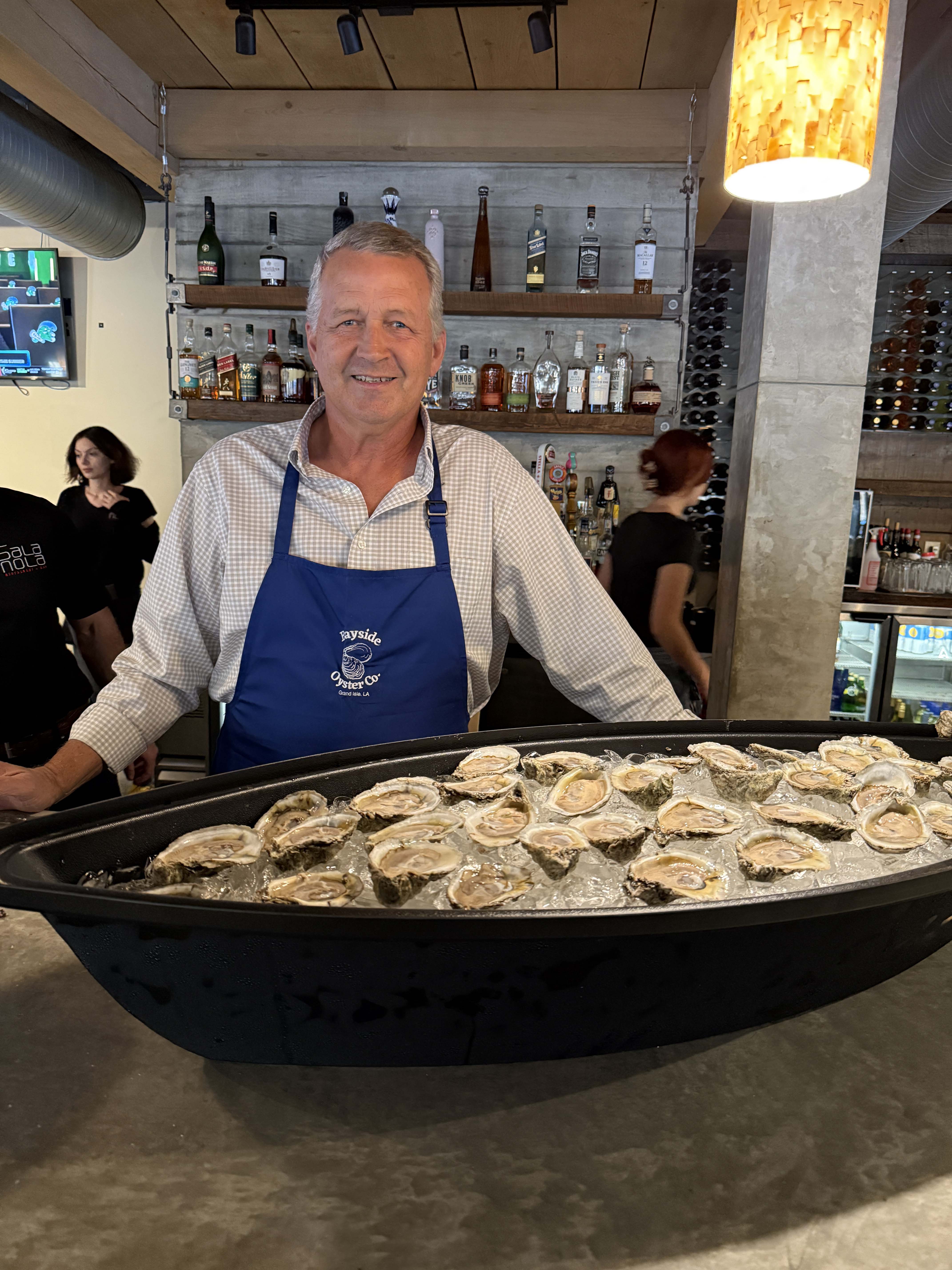
The latest
back to all articles
Chef Joe Turley: Sourcing Seafood
Honesty is the best policy when it comes to sourcing and serving domestic seafood at Cafe Degas, and that also includes educating their loyal patrons and staff. Chef Joe Turley, who has been with Cafe Degas for 12 years, says that the front of the house staff are trained to let diners know that they use fish from the Gulf of Mexico.
“All of our fish are going to be Gulf fish unless we have to special order stuff from Alaska or Hawaii or wherever every once in a while,” says Turley. “But 99 percent of the time, it’s going to be a fresh Gulf fish. We do our best to support the people who are working in the Gulf.”

Since 2019, Louisiana restaurants have been required to disclose if their shrimp and crawfish are domestic or imported, but this French bistro applies the rule to all their seafood items. On every Degas menu there is an asterisk that alerts diners that, “When domestic isn’t available, we use imported.”
When it comes to sourcing, Turley considers several factors: freshness, quality, availability, the local economy, price point and sustainability. That’s why, for instance, Turley doesn’t use Chilean sea bass, and does buy Gulf tuna.
“We want to sustainably source, and Chilean sea bass is overfished. Plus, we don’t want to gouge our customers by putting a $45 fish plate on our menu,” says Turley. “On the other hand, our diners expect tuna from the Gulf, not flown in from Hawaii. It’s sustainable, wild caught, affordable, and it means our Gulf fishers are getting paid.”
Freshness and quality does factor into the rare occasions when Turley sources outside of the Gulf. Getting crab meat can sometimes be difficult–especially during the COVID Pandemic, when it was scarcely available–and, as Turley puts it, “I’d rather serve fresh crab from Venezuela than frozen crab from anywhere.”
Turley relies on a couple of trusted vendors–Inland Seafood and Craig Borges New Orleans Seafood Co.-- for the restaurant’s seafood orders. And he also employs small companies like Shrimp Daddy, which supplies Degas with crawfish, crab, Gulf oysters and frog legs. Turley’s advice for new restaurateurs looking for vendors is to make sure you do your due diligence and research. Talk to the reps, find out exactly where it’s coming from, and “if they’re not willing to give you a tour of the facility, stay away.”
As a classic French bistro, there are some dishes that diners want and must be on the menu. For example, Les Moules au Fenouil, or mussels steamed in fennel and a white wine broth, is standard bistro faire and a Degas favorite, and the menu clearly states, “Prince Edward Island mussels.”
“When I think of mussels, I think of Prince Edward Island mussels, and it’s really the only thing I can’t get from the Gulf,” Turley says.
Overall, however, Turley says Gulf seafood satisfies his sourcing needs as a talented chef and those of his guests.
“You want to put something out there that you’re proud of, so the best way to do that is to start with quality meats,” Turley says. “If you can help out your community and the economy at the same time, I say ‘Why not?’”
more articles

December 17, 2025

November 12, 2025
.png)
October 16, 2025
.png)
September 10, 2025

August 2, 2022

August 2, 2022

August 2, 2022

August 2, 2022
